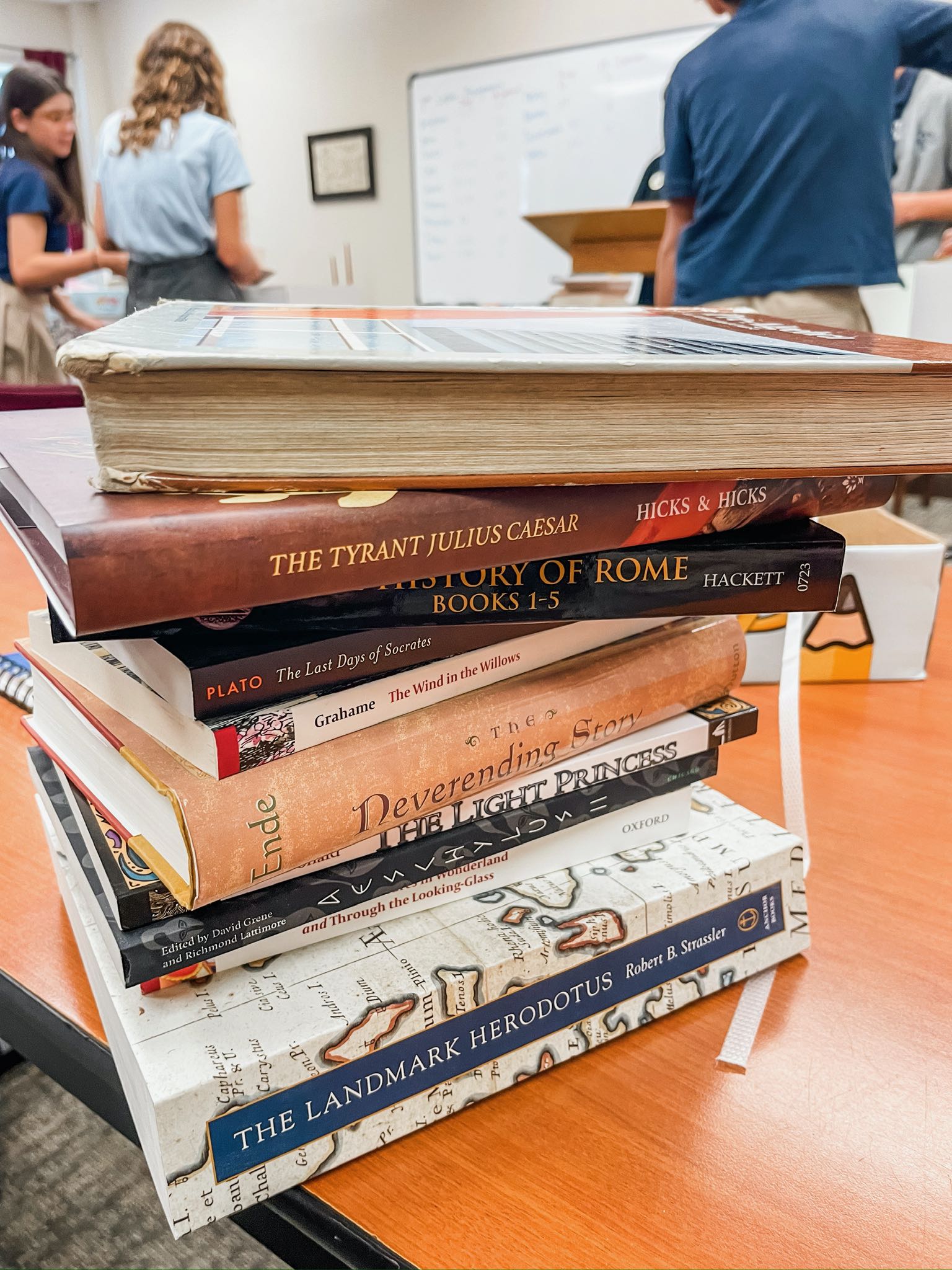Classical Christian schools can come across as pretty odd to most folks. While Latin can still be found in other private and public schools, not many schools teach six years of it. (I know of one classical Christian school that teaches eleven years of Latin.) And good books can certainly be found in other private and public schools, but not very many will read Homer, Virgil, Plato, Augustine, Rousseau, and Nietzsche. Memory is part of learning no matter what kind of school one attends, but not many schools will memorize hundreds of lines of prose, poetry, and Scripture every year. So yes, classical Christian schools can come across as odd even if only because of differences like these.
Topics: Blog Posts, Parenting, Classical Education, Classical Languages, True Education, Secular Education
A common defense for teaching Latin in schools hinges on the utility of the language. Arguments in this vein offer explanations such as: “Latin is the root of all other romance languages. Latin helps you think critically. Latin helps you understand inflected languages. Latin helps you understand grammar. Latin will help you understand English since there are so many derivatives.” These arguments are all true. Great as the number of these arguments is, very few apply exclusively to Latin, and those that do turn out to be weak anyway. I would like to suggest that we quit arguing for Latin based on its utility. My new thesis: Latin is useless; get over it.
Topics: Blog Posts, Classical Education, Classical Languages, Truth, Goodness, and Beauty
Classical educators are sometimes questioned about why we teach Latin and Greek to 21st-century students, and so I have used this space from time to time to offer an apologia for teaching those classical languages. And more of that is exactly what I intend to do now. Someone will protest and say, “Why do we need this explained to us again?” It is always good to be reminded why we do good things.
Those with a utilitarian view of language often apply pressure on classical schools to teach something “useful”: Spanish, for instance; French, if you must; Chinese, if you can. Those are all lovely and useful languages. If we were a large, wealthy school with a “Foreign Language Department,” we would happily teach all of those languages as electives, but do you know what we would continue to require for all our classical students? Latin and Greek and lots of it.
Topics: Blog Posts, Classical Education, Classical Languages, Admissions
Struggle is among the most important elements in the learning process. Learning a new thing—whether Greek, knitting, or fly-tying—is hard work and requires some pain if it is to be done well. Think of it this way: after learning something new, one is not the same person he was before he learned the new thing; he has undergone a metamorphosis. That process of change necessarily comes with some struggle and pain.
Topics: Blog Posts, School Life, Parenting, Classical Languages
Even though we are barely halfway through the school year, this is enrollment season, and classes are already filling up for next year. Families are touring the school, meeting with our admissions counselor, and drawing comparisons between classical Christian and other models. At Trinitas our kindergarten classes are nearing full and we have accepted a few students for other open seats in the grammar school. The grammar school is where most of our effort to bring in new students is focused. There are two other natural entry points for schools: seventh and ninth grades. While we do accept students in those grades occasionally, it can be difficult to enter a classical school that late in one’s academic career, especially as late as ninth grade.
Topics: Blog Posts, Classical Education, Classical Languages
The benefits of learning Greek as a tool to sharpen one's mental abilities cannot be overstated.
“I would make them all learn English: and then I would let the clever ones learn Latin as an honor, and Greek as a treat.” -Winston Churchill
This quote from Churchill at times can be taken out of context. It would appear that Churchill spoke of Latin as the cognitive sharpening tool of the clever. But a more careful reading would show that Churchill understood that both Greek and Latin were excellent tools for cognitive development.
Topics: Blog Posts, Classical Education, Classical Languages
 Classical educators are frequently asked why we teach “dead languages.” At Trinitas, we teach both Latin and Greek as part of our core curriculum, and we believe to do otherwise would make us something other than classical. We don’t cling to these languages out of some foolish consistency or for the sake of keeping up classical appearances. No, we cling to them for their unparalleled value as educational tools.
Classical educators are frequently asked why we teach “dead languages.” At Trinitas, we teach both Latin and Greek as part of our core curriculum, and we believe to do otherwise would make us something other than classical. We don’t cling to these languages out of some foolish consistency or for the sake of keeping up classical appearances. No, we cling to them for their unparalleled value as educational tools.
Topics: Blog Posts, Classical Education, Classical Languages








